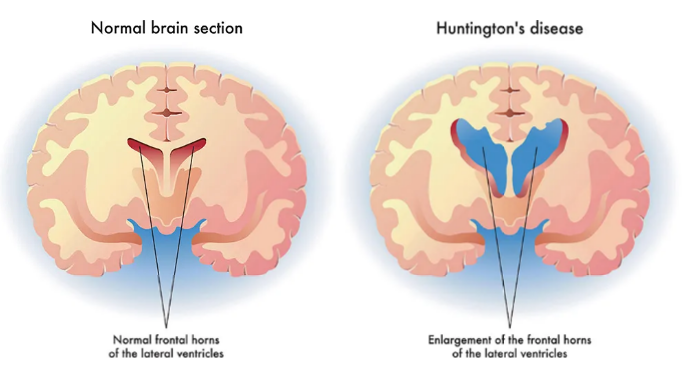ForumIAS announcing GS Foundation Program for UPSC CSE 2025-26 from 19 April. Click Here for more information.
ForumIAS Answer Writing Focus Group (AWFG) for Mains 2024 commencing from 24th June 2024. The Entrance Test for the program will be held on 28th April 2024 at 9 AM. To know more about the program visit: https://forumias.com/blog/awfg2024
Source- This post is based on the article “For Huntington’s disease clues, scientists are looking in fruit flies | Explained” published in “The Hindu” on 28th December 2023.
Why in the News?
Recently researchers have advanced their comprehension of Huntington’s disease through the examination of fruit flies (Drosophila melanogaster)
What are the Findings of the Study?
1) Individuals with Huntington’s disease harbor a mutated form of the HTT gene, responsible for encoding a protein known as huntingtin (Htt).
2) Nerve cells require Htt protein for their normal functioning and survival. However, a mutated gene encoding for an abnormal Htt protein leads to the destruction of neurons controlling movement, cognition, and memory.
3) The mutant HTT gene is considered to be a dominant gene i.e the disease is triggered even if one copy of the gene, inherited from either parents, is mutated.
4) The scientists genetically engineered fruit flies to express the mutated human HTT gene into their nervous system.
5) The research found that excessive expression of Yod1 gene removed all disease-like effects in the flies, including neurodegeneration. This indicates a possible avenue for therapeutic intervention in humans.
What is Huntington’s disease?

1) Huntington’s disease (HD) is a hereditary neurodegenerative disorder characterized by the progressive breakdown of nerve cells in the brain.
2) It is caused by a mutation in the huntingtin gene (HTT), leading to the production of a defective form of the huntingtin protein which in turn affects the neurons in the brain.
3) Symptoms: includes involuntary movements, cognitive decline, and emotional disturbances and typically manifest in adulthood
4) Treatment: it is currently incurable and treatment cannot reverse its progression or slow it down. However, health care providers can offer medications to help with certain symptoms.
UPSC Syllabus- Science & Technology




